Campaigners are calling for Welsh-medium education to be made available for all following a drop in the number of Welsh speakers and decades of missed opportunities
“THERE was an attitude that we should only speak English and that Welsh was just a silly language,” said Karen Akinci, 51, reminiscing on her school days at Oakdale Comprehensive School in Caerphilly.
“The education system in Wales was pretty dire, I feel like in that generation we missed something,” said Stewart Sumner-Smith who grew up in Swansea during the 70s.
These are the voices of just two of the many who feel that a lack of Welsh-medium education robbed them of a language.
However, five years after the Welsh Government set the target of one million Welsh speakers by 2050, people are still calling for better Welsh-medium education provision.
One of these is 41-year-old campaigner Carl Morris who grew up in Cardiff where he feels that he missed the opportunity to connect with the language.
“The Welsh language felt like something that belonged more to the North or West Wales.”
– Carl Morris
Credit: Senedd Cymru
“The Welsh language felt like something that belonged more to the North or West Wales,” he said.
He recalled the two hours of second language Welsh lessons he received every week and the disappointment of it barely being enough to learn any Welsh.
“At best it was a bit of a taster, it felt very restrictive,” he said.
It was through this shared frustration that Mr Morris connected with a group of peers who felt they had also been deprived of an opportunity.
“We came together to voice that opinion of I Wish I Spoke Welsh,” he recalled. “It’s not just me, it’s a large proportion of the population.
“We describe Wales as a modern democracy with its own Senedd, but it doesn’t give everyone the opportunity to learn the official language.
“The system is failing the children.”
That’s where the Wish I Spoke Welsh campaign, which has created a Senedd petition urging for a clear timetable to roll out Welsh-medium education for all, was born.
Cardiff is currently home to only three Welsh-medium secondary schools – Glantaf was the first established in 1978.
It was followed by Plasmawr in 1998 and Bro Edern in 2012, making Welsh-medium education inaccessible for most until recent years.
Mr Morris fears that the rarity of Welsh-medium opportunities in some areas means that non-Welsh-speaking parents are unaware that they exist.
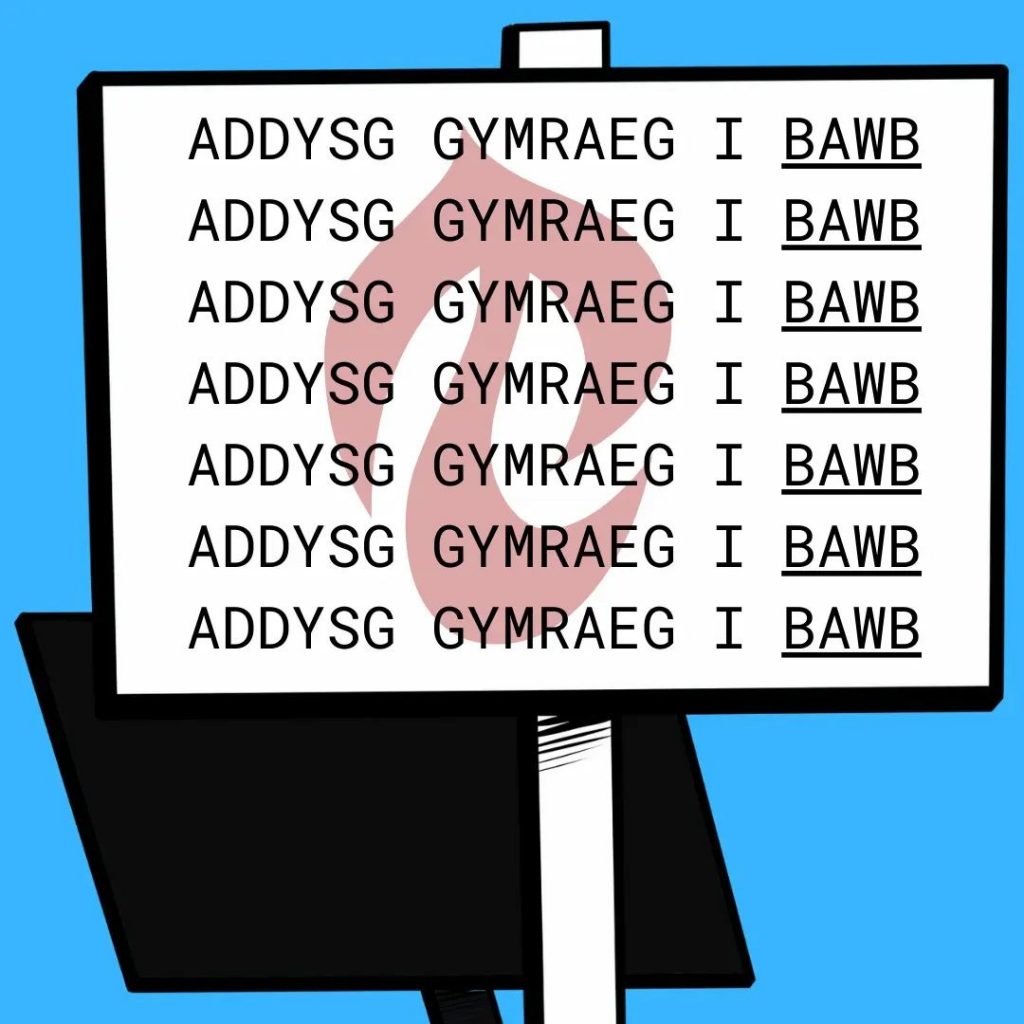
Credit: Cymdeithas yr Iaith
Also campaigning for Welsh-medium education for all is Cymdeithas yr Iaith, or The Welsh Language Society, which began campaigning for the right to use the Welsh language in every aspect of life in 1962.
In their proposed Welsh Education for All Act, they outline the reality of Welsh-medium education in many parts of the country.
In Powys, Wales’ largest county by area, there aren’t any Welsh-medium secondary schools meaning that many young people have no choice but to travel to neighbouring counties.
They also state that 11% of children lose the language due to a lack of progression between the primary and secondary sectors.
Based on the annual growth of 0.05% since 2010, it would take 1,560 years to ensure that every year seven child receives a Welsh-medium education.
Therefore, Cymdeithas have called for a framework which would ensure that pupils leave school fluent in Welsh.
“The aim would be to get every school, over a period of time and at different paces, to move towards Welsh-medium in the most effective way,” said Toni Schiavone from Cymdeithas’ education group.
One way of doing this would be by removing the concept of second language Welsh to ensure that everyone gets an equal opportunity to learn without restrictions.
The Welsh Government has promised a new Welsh GCSE by 2025 which aims to achieve this, according to Education Minister Jeremy Miles.
Qualifications Wales claims that the new GCSE would encourage learners of all abilities to be confident in their Welsh.
However, campaigners including Cymdeithas’ former chair Mabli Siriol argue that the move is just a rebrand that offers no real progress within the education system.
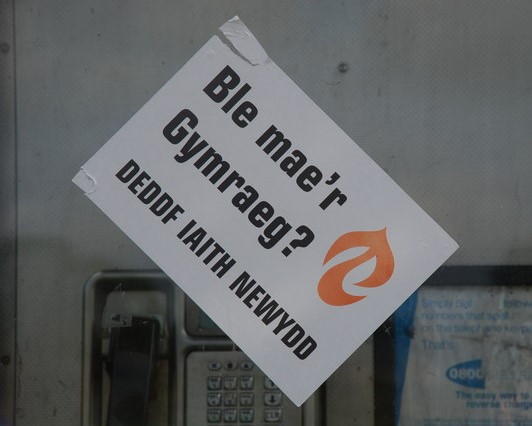
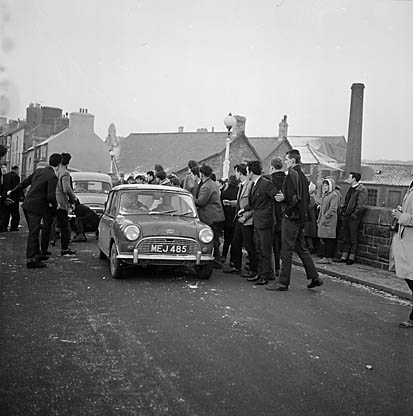
Credit: Geoff Charles and The National Library of Wales
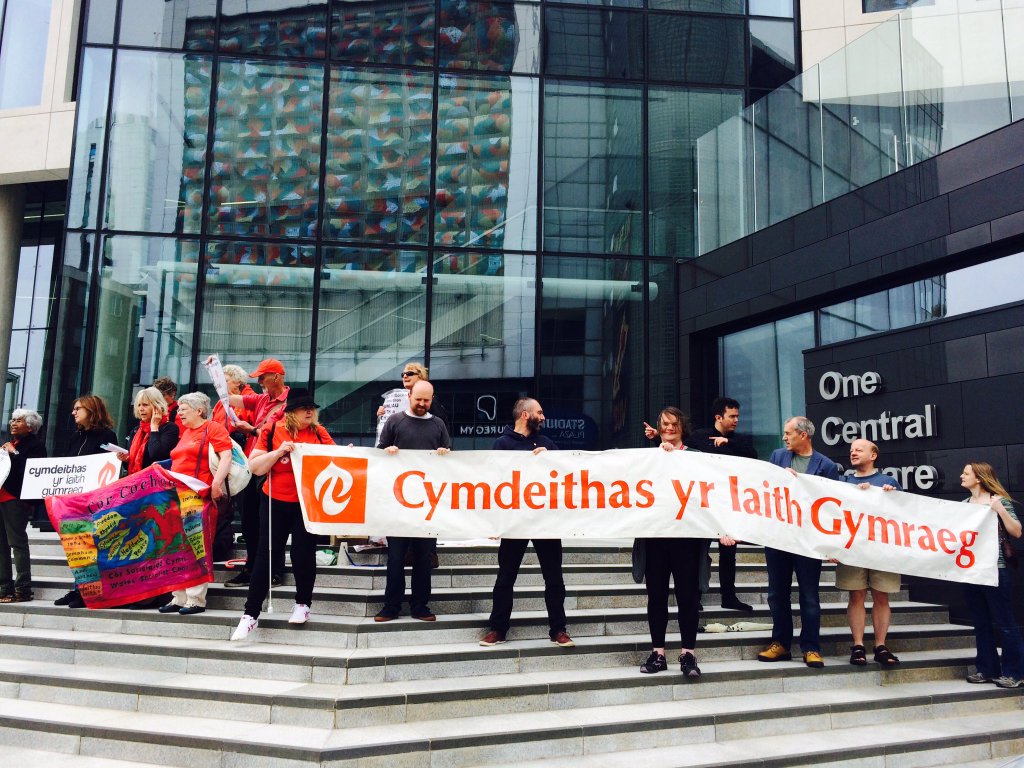
Credit: Oergell
Despite this, Mr Schiavone said he was glad to see the government taking some of the principles on board and that he feels optimistic that more will be followed in the future.
“Training should be extended and include the post-16 group to ensure that there are opportunities, regardless of fluency, to use and develop language skills,” said Mr Schiavone.
He also raised the need for more opportunities to learn Welsh in the workplace and for every apprenticeship in the country to include ways to develop Welsh language skills.
Angharad Jones, head of bilingual development at Chepstow School, speaks highly of her own opportunity to learn Welsh in the workplace.
“It honestly changed my life,” she said.
In 2020, she learned Welsh at Cardiff University through the Welsh Government’s Welsh in a year scheme.
The fully-funded course aims to increase the number of teachers who can provide Welsh language education in English-medium schools across Wales.

There seems to be an outcry really for Welsh teachers and teachers are realising the importance of bilingualism now”
Angharad Jones
However, she believes that new jobs are being created to bridge those gaps such as her role as head of bilingual development which she started in September.
She described the excitement of seeing Welsh being used in the corridors every day and said that it has helped her connect with her Welsh heritage.
Like many others of his generation, Miss Jones’ grandfather lost his language while at school during the Welsh Not.
The Welsh Not was an engraved token of wood on a piece of string that was used in schools across the nation during the 19th century.
The token was passed forward every time a pupil was caught speaking Welsh with the person wearing it at the end of the day being punished – usually by a cane.
English was seen as the language of economic advancement at the time with teachers and school organisations deciding that banning Welsh would be the best option.
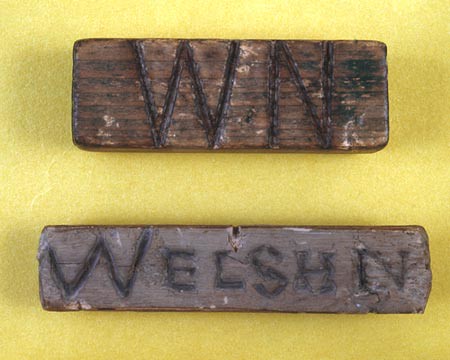
Although attitudes towards the language have since changed, Karen Akinci felt that the language was still inaccessible during her education in the 80s.
“The only Welsh we were ever exposed to was singing and even that was on St David’s Day,” she said.
I was absolutely gutted, I was constantly asking ‘why aren’t we speaking Welsh?’
Karen Akinci

“I do feel that it was 50 years of wasted time, why didn’t I start learning Welsh at five?”
“From what I hear there’s still no real access to Welsh in the area,” she said referring to where she grew up.
She now lives in Istanbul and became fairly fluent in Turkish shortly after moving there as she has more opportunities to immerse herself in the language.
Likewise, Stewart Sumner-Smith says there has been little improvement in his area over the past few decades.
“There’s a bilingual school but the places are limited, I know that it’s very hard to get in,” said the 58-year-old.
He, like campaigners, sees the importance of improving access to Welsh-medium education to ensure more opportunities such as job prospects for future generations.
However, he believes that this must come with a cultural change so that learners can better immerse themselves in the language.
“We need language officers in every area and for organisations to fully get behind it,” he said.
“What about all the children who have grown up and left school? It’s about them as well.”

You can’t just target schools; you need to target communities.”
Stewart Sumner-Smith
Cymdeithas has now called on First Minister Mark Drakeford and Education Minister Jeremy Miles to ensure that a Welsh-medium education act is put into action and made accessible for all.
“We’ve got good reasons to be optimistic about the next decade,” said Mr Miles.
“Today, we see more children in Welsh-medium education, more opportunities to learn Welsh, and greater pride in our language and our identity than ever before.”
However, the latest Census reflected a drop of 24,000 in the number of Welsh speakers between 2011 and 2021.
The Welsh Government said that they aim to tackle this by increasing capacity and establishing new Welsh-medium schools in 11 new projects across nine local authorities.
The Wish I Spoke Welsh petition has now surpassed 1,000 signatures showing that there is some support within the Welsh public for more to be done.


